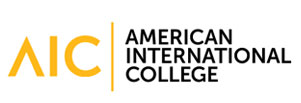
Study in New Zealand
About New Zealand
New Zealand is an island country in the South-Western Pacific Ocean that covers two main landmasses (the North Island and the South Island) and numerous smaller islands. The country is situated about 2,000 kilometers (1200 mi) east of Australia across the Tasman Sea and about 1,000 kilometers (600 mi) south of the Pacific island nations of New Caledonia, Fiji, and Tonga. New Zealand in terms of its beauties and other need-based facilities and opportunities and qualities of education has emerged as a hot destination for students from the rest of the world. New Zealand, with a total area of 268,680 square kilometers, is comparable in size to Great Britain, Japan, or Colorado. Its closest neighbors to the north are New Caledonia, Fiji, and Tonga. Its capital city is Wellington, the southernmost national capital in the world. New Zealand is a modern parliamentary democracy based on the Westminster parliamentary system. The New Zealand Parliament is the legislature of New Zealand, consisting of the Queen of New Zealand (Queen-in-Parliament) and the New Zealand House of Representatives. The Queen is usually represented by her governor-general. The House of Representatives normally consists of 120 members of Parliament (MPs), though sometimes more due to overhang seats. There are 71 MPs elected directly in electorate seats and the remainder are filled by list MPs based on each party’s share of the total party vote. Although elections can be called early, each three years Parliament is dissolved and goes up for re-election. Parliament is closely linked to the executive. The New Zealand Government comprises a prime minister (head of government) and other ministers. In accordance with the principle of responsible government, these individuals are always drawn from the House of Representatives and are held accountable to it. Primary and secondary schooling is compulsory for children aged 6 to 16, with the majority attending from the age of 5.New Zealand has an adult literacy rate of 99 percent, and over half of the population, aged 15 to 29 hold a tertiary qualification. Tertiary education in New Zealand is provided by universities, institutes of technology and polytechnics, private training establishments, industry training organizations, and wānanga (Māori Education). It ranges from informal non-assessed community courses in schools through to undergraduate degrees and research-based postgraduate degrees. All post-compulsory education is regulated within the New Zealand Qualifications Framework, a unified system of national qualifications for schools, vocational education and training, and ‘higher’ education. The New Zealand Qualifications Authority (NZQA) is responsible for quality assuring all courses and tertiary education organizations other than universities. Under the Education Act 1989, The Committee on University Academic Programmes (CUAP) and the Academic Quality Agency (AQA) have delegated authority for quality assurance of university education. The Tertiary Education Commission (TEC) is responsible for administering the funding of tertiary education, primarily through negotiated investment plans with each funded organization. New Zealand has eight state-funded universities, 18 Institutes of Technology and Polytechnics (ITPs) which have been unified into the New Zealand Institute of Skills and Technology (NZIST), and about 860 Private Training Establishments (PTEs), which include English language schools.
New Zealand as a study Destination
As per the Global Peace Index 2017, New Zealand is the world’s second most peaceful country with high political stability and lowest rates of corruption. The New Zealand approach to education fosters self-reliance, inquisition, and fresh thinking with a holistic approach to education. Choosing New Zealand for education would be a great decision because it’s a place of world-class citizens and it will provide you with all the necessary life-skills. New Zealand’s universities are renowned for their world-class education with all of the eight universities being in the top list of 3% in the world. The qualifications acquired at NZ are globally recognized and respected which consequently opens up the world to the students. The universities of New Zealand and other institutions are known for the excellent teaching methods which include practical, hands-on learning techniques. New Zealanders are known for being very welcoming, friendly, and respectful of all cultures and people making it easier for students to adapt to the new country. The magnificence of beauty and serenity of the locale is the perfect panacea to the pressurized existence that most students undergo on a daily basis!
Education System in New Zealand
Education in New Zealand is based on a three-tier model, which consists of primary schools, secondary schools (high schools), and tertiary education at Universities. The Program for International Student Assessment ranks in New Zealand’s education is in the 7th best rank in the world. The New Zealand Qualifications Framework (NZQF) is the core of the education system. All qualifications are listed on this framework, assuring quality that is recognized and trusted worldwide. Ministry of education (MOE) has freed and made compulsory education between the ages of 6 and 16. In other cases, students can get facilities as they apply to MOE. The academic year in New Zealand varies according to institutions. Primary and secondary schools and polytechnics often run from late January until mid-December and for Universities for late February until mid-November. New Zealand Education System generally includes universities, Institutes of Technology and Polytechnics (ITPs), Private Training Establishments (PTEs). New Zealand’s educational institutions offer quality secondary school education, a well-established network of English-language schools, and internationally respected and recognized tertiary education providers. Post-secondary education is regulated by the New Zealand Qualifications Authority(NZQA). As well as state-owned education providers, there are approximately 860 private training establishments (PTEs) registered with the New Zealand Qualifications Authority (NZQA) in New Zealand. They are privately owned and funded, although some of their courses attract government funding and they include quality English – language providers. They offer a wide variety of courses that lead to qualifications in a large range of vocations from scuba diving to hospitality to business. NZQA requires that Private Training Establishments (PTEs) have adequate protection of student fees and tuition. Polytechnics offer education and training at tertiary levels ranging from introductory studies through to full degree programs. They deliver technical, vocational, and professional education. The National Qualifications Framework is a system of national qualifications available through study in schools, polytechnics, colleges of education, etc. The Framework provides nationally recognized, consistent standards and qualifications. The Framework is endorsed and supported by New Zealand’s education and training providers, employers, and national industry and professional groups. It is compatible with similar systems in the U.K., Europe, South Africa, Australia, and North America.
In this way, the education system in New Zealand is enormously diverse and one of the best in the world, maintaining excellent standards in literacy, mathematics, and sciences and ranking well consistently by global standards. New Zealand education is also becoming increasingly international, influenced by wide employment markets and an increasingly mobile network of teaching staff, researchers, and a well-traveled population of students.
Scholarships to study in New Zealand
Universities and schools in New Zealand offer a range of scholarships, bursaries, and grants to international students. You can also apply to scholarships provided by the government, public and private organizations. Before you apply to any of these scholarships, do check the eligibility and criteria, along with the closing date. There are instances when students have been awarded 100% scholarships. That means, the scholarship takes care of the tuition fee. Sometimes, scholarships also extend beyond the tuition fees and also cover many aspects of the cost of living expenses, like accommodation and stationery-book costs. But like true treasures, these are rare and the competition is very high. Here are two of the major Scholarships you need to know:
New Zealand International Doctoral Research Scholarships (NZIDRS)
NZIDRS is funded by the New Zealand government and is available to International Students planning to pursue a Ph.D. in New Zealand. Inclusions under this award are university tuition fees, associated student levies, living stipend (up to NZ$25,000 tax-free), and health insurance coverage (up to NZ$600 annually) for three years.
New Zealand Development Scholarships is one of the most popular government scholarships for international students to pursue the postgraduate study of Postgraduate Certificate (6 months), Postgraduate Diploma (1 year), Master’s Degree (1-2 years), Ph.D. (up to 3.5 years) at one of eleven New Zealand universities and education institutions in New Zealand. It is funded by the New Zealand Aid Program and managed by the New Zealand Ministry of Foreign Affairs and Trade (MFAT). Apart from these, all universities and colleges also have their own set of scholarships that can be subject or destination specific. Do check with them for available options in time
While several scholarships, ranging from those covering 10% to 50% of tuition fees, are offered directly to students who are eligible according to merit or similar parameters, there are also scholarships for which applicants have to sit for a test and availability is subjected to cracking these tests. Every scholarship has its own eligibility criteria. In the case of some, just an application will help you get hold of the scholarship. For research centric programs, you may have to submit written assignments. So, research well and do not hesitate to contact the university admission center if you have any doubts. Your Shatakshee counselor can also assist you in finding the right scholarship for you. You may experience higher competition when you apply for government scholarships in comparison to the university scholarships. So, it’s always better to apply in advance to receive a timely response. Certain research programs may provide up to 100% of the tuition fee besides covering a part of your living expenditures. Securing a good scholarship can help bring down your cost of studying internationally considerably. If you wish to explore university wise options, speak with your Shatakshee counselor for specific details.
Top Reasons Why You Should Study in New Zealand
New Zealand is one of the safest and most beautiful countries in the world. With excellent study opportunities and world-class education, it is emerging as one of the topmost preferences among Nepalese students wanting to study abroad due to its excellent education system, globally accredited qualifications, ample research opportunities, matchless quality of life, low cost of living, and exclusive facilities, to name the few features. While studying here, you can be assured of a welcoming and friendly society with an excellent support system for international students. Here are some of the top reasons why you should New Zealand for your further education.
Globally recognized Qualifications
New Zealand’s Universities and Institutions are internationally recognized and accepted. New Zealand’s qualifications are highly regarded by employers in the world. All eight universities of New Zealand consistently rank high amongst the world’s best by QS World University Rankings and Times Higher Education Rankings. New Zealand universities rank in the world’s top 100 in 65 subjects in the 2020 QS World University Rankings. Similarly, New Zealand was ranked the top English-speaking country at preparing students for the future by The Economist Intelligence Unit in 2019.It substantiates that qualifications from New Zealand’s Universities and Institutions are accredited across the globe, opening doors to prospects everywhere. The New Zealand Qualifications Authority (NZQA) also ensures that institutions are registered to enroll international students and comply with qualifications standards.
2.Choose the type of institutions that’s best for your career path
Universities offer higher degree-level education. Programs are research-led and generally academic rather than vocational. In the 2020 QS World University Rankings, seven of New Zealand’s universities were in the top 100 in at least one subject. State-owned ITPs and a few larger PTEs offer vocational degree-level education offering the courses at all levels of study, from foundation certificates to undergraduate degrees, postgraduate programs and master’s degrees. strengthening of vocational education and training system by making it more supportive, flexible, and relevant to workplaces is the demand of time and the reason of 16 state-owned Institutes of Technology and Polytechnics (ITPs) are being unified into a single national institution, the New Zealand Institute of Skills and Technology (NZIST). It’s understood as a new way of learning to give the students skills and knowledge to achieve their goals in life. Similarly, PTEs tend to offer high quality but affordable education through specialized institutions with the highest standards that assure you the excellent training and a great student experience where you can choose from a wide range of qualifications and get the skills you need to work in the industry as you want. Smaller class sizes give you access to academic staff and industry partners.
3.Excellent pedagogy and quality assurance systems
The New Zealand education system is based on the British education model and it focuses on research-based teaching, which means you will learn to deal with situations in a systematic and organized manner. You’ll be taught how to work independently as well as in a team at various levels. New Zealand’s higher education programs are well known for their quality of teaching and advanced facilities. The government of New Zealand has excellent quality assurance systems to monitor and ensure quality education. Students can immensely benefit with their practical oriented education and excellent teaching standards. Studying here will encourage you to think critically, question, and benefit from student-teacher interaction. You’ll also be implementing the concepts learned in the classroom and develop different approaches towards solving a problem.
4.Innovation and research
New Zealand provides abundant opportunities for research for students. The country boasts of highly experienced faculty, well-equipped laboratories, access to the latest technology, equipment, and opportunities. Its innovative spirit has made it a hub of new technologies, research, and development in various fields such as healthcare, physics, geology, engineering, astronomy, computer science, agriculture, etc. Add to it, the Nobel prizes that the country has in its kitty simply reinstate the significance and vast scope of research in New Zealand.
5.Great scope for Ph.D. scholars
Along with the vast research opportunities, as a Ph.D. student, you would enjoy additional privileges. You’ll be eligible to pay the same tuition fee as locals and unlike other degree students, you can work full-time during your studies.
6.Quality of life
New Zealand offers a wonderful multi-cultural environment that exists in perfect harmony with the country’s outdoorsy lifestyle. Replete with all kinds of natural landscapes ranging from snow-capped mountains and steaming volcanoes to rolling green hills, golden sandy beaches, and lush rainforests, New Zealand screams wanderlust. Living here provides every student a chance to grow with its diverse culture and natural beauty all at once.
Tuition Fees & Expenses
New Zealand is the perfect study abroad destination for Nepalese students due to its lower annual tuition fees and low cost of living for many courses. The living expenses in New Zealand are cheaper than other studies abroad destinations like Canada, the UK, the U.S, and Australia. Fresh Food, accommodation options, and transport facilities are easily available at affordable costs in the country.
Approximate Cost of the Course at Universities:
Undergraduate – $18000 – $25000
Post Graduate – $25,000 – $40000
Approximate Cost of Living: NZ $ 12,000 – NZ $ 15,000 per annum
Minimal Requirements
New Zealand Universities have minimal entry requirements for many programs. There is not much competition to get admission to a university whether it is a bachelor’s degree, master’s degree, or postgraduate diploma courses in New Zealand. Students with passing marks and moderate grades can study there easily and the minimum IELTS score for UG courses is overall 6.0 with no band less than 5.5 and PG courses require overall 6.5 with no band less than 6.0 in each band. Also, there is no age bar to study in New Zealand.
The international students seeking admission in New Zealand Universities can pay the tuition fee after they get student visa approval for New Zealand.
Safe and Stable Society
New Zealand ranks second on the Global Peace Index 2018*, which speaks about the social tolerance and political stability of the Kiwi democracy. As an international student, you’ll have the same rights as your Kiwi counterparts. The people in New Zealand accept and respect other cultures and welcome international students warmly in the country irrespective of religion, caste, and gender.
10.Beautiful Country
New Zealand is a mysteriously fascinating country with extremely beautiful landscapes, mountains, lakes, and unique biodiversity.
For anyone who looks for adventure, New Zealand offers great adventure activities including white water rafting, skiing, mountain biking, etc. There are always new things to do and enjoy while staying in New Zealand.
New Zealand offers the best of both the worlds- city and country life. You can access all the modern amenities and facilities of city life while enjoying the beauty of the countryside.
11.Living in Multicultural Hub
As an International student, New Zealand is one place that will provide you with all the necessary life-skills. It is one of the countries of the world which is still close to nature and modern at the same time. The New Zealanders’ are known for being warm to all people and being an international student is a chance to experience it firsthand. Apart from these, due to its ever-rising popularity as a study and travel destination, it has turned into a hub of multiple cultures. And this will not just help students get exposure in a multi-cultural hub but also bring them face to face with the world’s dynamic cultural reach.
Study and work
As an international student in New Zealand, you can work for up to 20 hours every week during your semesters and full-time during breaks. In fact, if you’re pursuing research master’s or a doctoral degree, you will be allowed to work full-time. There are many part-time opportunities available in sectors like retail, hospitality, banking, finance, etc. Some students find a part-time job in their specific university.
If you have any query about studying in New Zealand, courses, universities, scholarships, or student visa, feel free to call Shatakshee at (+977) 01-4443782 or send an email on [email protected]
Tuition fee in New Zealand
Pursuing an Undergraduate Degree program in New Zealand can cost something from NZ $20,500 to NZ $32, 000 annually. Similarly, Postgraduate Diploma and Degree can cost something around NZ $19,000 to NZ $ 35,000 annually, Doctoral degree around NZ $ 6500- NZ $ 9000 annually but MBA NZ $30,000- NZ $50,000 annually (All figures are indicative)
Also, it is mandatory for all Nepalese students to get medical insurance before traveling to New Zealand.
Accommodation Types in New Zealand
On-campus Residence
Most universities in New Zealand offer on-campus residence facilities called the Halls of Residence to international students. Living as a resident on-campus is a very affordable option. However, you need to apply for it separately, and well ahead in time to secure a slot for yourself. These will generally cost you around NZD 200-NZD 555 per week (depending upon the city and type of accommodation). You can choose from either fully-catered or self-catered Halls of residence.
Homestay (Paying Guest)
Quite similar to the system of paying guests, in the Homestay system, a New Zealand family hosts you, providing fully furnished independent rooms. You are also provided meals and most of the time it leads to a lifelong friendship with the hosts, who are basically your new family. It is also a very effective way to understand and embrace the culture of the country.
Off-Campus Accommodation
These are basically apartments on rent, which can be either furnished or unfurnished. These can be found almost everywhere across New Zealand. These are independent accommodation systems and most of our students choose this and share the rent, power, and other bills with roommates. The cost of living in this system is comparatively higher and is dependent on the location and amenities provided. Living in shared apartments can cost you approx. NZ$120 per week or private flats can cost you around approx. $180 per week. Remember, the rentals vary from city to city.
Temporary Accommodation
If you reach before the date of your tenancy, you can book temporary accommodation at youth hostels such as the YMCA. These are good value-for-money accommodations and a great avenue to meet new people.
International students cost
The cost of further education depends entirely on where you study and what courses you take. School fees Annual fees for state schools start at about $11,000 for primary schools and $13,000 for secondary schools. Annual fees for private primary and secondary schools start at about $25,000.Diplomas/Certificates Choose a course to suit your budget. For example, study for a two-year New Zealand Diploma in Engineering for $18,500 or a one-term Certificate in Computing for $12,425.Bachelor’s degree Fees range from about $20,500 to $30,000 annually, with higher fees for subjects such as medicine and veterinary science. Many bachelor’s degrees can be completed in three years. Postgraduate diploma and degree Fees range from about $19,000 to $35,000, with higher fees for subjects such as medicine and veterinary science. PhDs International Ph.D. students pay the same as New Zealand Ph.D. students, which is about $6,500 to $9,000 per year for most subjects. English language courses Choose a course to suit your budget. For example, study a general English course for $300 per week, or a Cambridge English exam course for $5,100 for 12 weeks. Also, it is mandatory for all Nepalese students to get medical insurance before traveling to New Zealand. For information about the cost of your specific course, contact our office now!
Living Expenses
Considering various expenses and living costs, a tertiary student budget in New Zealand comes between NZ$ 13,000 and NZ$ 16,000 per academic year (indicative). You should also consider these common expenses when creating your budget: If you want to study in New Zealand for more than a year, then you‘ll need to show that you have at least $15,000 to cover your living expenses for the first year. But, if you’re studying for less than one year, you must have at least $1250 for each month of your study program to contribute as your living expenses. Living costs will depend on your lifestyle and which part of the country you live in. Some costs vary by region. For example, you may need to travel more in the main centers, and transport costs may be more expensive than in your home country. As an example of how much to budget for, Victoria University recommends that students allow between $18,000-$27,000 each year, the University of Auckland recommends $20,000-$25,000, the University of Otago recommends $15,000-$17,000, and Massey University recommends $15,000-$18,000.
Medical insurance
It is mandatory for all students traveling to New Zealand from Nepal to get medical insurance before the commencement of their program. Several New Zealand schools and universities have initiated comprehensive health insurance plans for international students, but that is applicable as long your program is ongoing and ceases upon completion.
Certain colleges may not offer any insurance, and hence you will have to arrange for private medical insurance (your Shatakshee counselor will guide you with the same). The average cost for medical insurance ranges between NZ$ 200 – NZ$ 700 a year (indicative). Extensive health and support services are readily available for all International students in New Zealand.
Health insurance is quite affordable for international students. For instance, yearly health and travel insurance cover in association with StudentSafe (a popular choice with students) are approx. $590. The cheapest international student health insurance is Orbit Protect which costs approx. $454 for a year.
Know more: Health and support services in New Zealand
Available Intakes
February and July are the major intakes for the Universities, though some Institutions & Polytechnics also have intakes in the months of September/November. Admissions for vocational courses may also be available in the months of March, April, and May. Don’t worry, our international education experts are here to guide you with the latest updates to help you apply to your desired course and institution. Feel free to connect with our experts for a free counseling session.
English Proficiency Requirements
It is very important for an international student to be proficient in English to be able to study in a country whose official language is English. New Zealand is no exception. A student must give the IELTS and obtain the minimum score required for his particular course set by the chosen University of New Zealand. Generally, the minimum IELTS score for UG courses is overall 6.0 with no band less than 5.5, and PG courses require overall 6.5 with no band less than 6.0 in each band.
Work Right While You Study
If we talk about the ways to keep the expenses and the budget in order, studying abroad has a few advantages. Firstly, part-time work during studies is one of the most popular ways of earning a little, hence taking the load off of your actual financial reserve. Like every country, New Zealand has certain policies in place to make sure students are contributing as much time to studies as working and earning as a student. There are options, within the campus itself, to work part-time and earn some extra cash. If you’re a student with a student visa enrolled in a full-time program, you may be able to work*:20 hours per week during the year. You might be able to work full-time during scheduled breaks in the study if you’re studying full-time for at least 1 academic year and your course is worth more than 120 credits. Often, if you’re studying full-time and your course is worth 120 credits or more, the best time to work full time is during the Christmas and New Year holiday period. There are no restrictions on the hours you can work if you’re enrolled in a Masters by research or doctoral degree program awarded by a New Zealand tertiary institution. SOURCE: www.immigration.govt.nz
It is always advisable to stay in touch with college or university authorities regarding notifications and updates of work permits to stay clear of any legal issues. You can also contact our counselors now to know more about working while studying in New Zealand universities or colleges.
After Graduation Work Right
The New Zealand Government offers pathways for recent graduates after completing Bachelor’s/Master’s/ Post Graduate Diploma studies to live and work in New Zealand. Depending on the area of study, you may have the opportunity to stay and work in New Zealand for up to four years initially. This is a great opportunity for anyone who wishes to acquire work experience in New Zealand, thereby opening new avenues for them.
Your graduate pathway has two steps: a post-study work visa that offers you up to 12 months to find a job in a related field of study, or an employer-assisted work visa that allows you to stay in New Zealand for either two or three years to gain work experience related to a specific job with a specific employer. * To check whether you’re able to work while studying, visit Immigration New Zealand. ** Find out more about post-study work visas at Immigration New Zealand.
For further information, contact our office today
Enrolment Guide
Have all your documents in place. This includes your passport, previous examination mark sheets, medical certificate, and any other document that your counselor might ask for.
Submit the application and get it assessed. Most of the time, your application is required to be supported by a Statement of Purpose (SoP). The SOP must be written by the applicant and should state certain basic facts about them. Think of it as a letter of introduction that portrays your personality to the authorities. These should be crisp, clear, creative, and most importantly, honest. As our counselors regularly deal with student applications, it is advisable to let them go through the documents before sending it to the concerned university or college to avoid errors or rejection.
To study in New Zealand universities, you need to appear for any of the English-proficiency tests like IELTS, PTE, or TOEFL. A high score in the English proficiency test can help you get into the best of the universities which usually set the score-bar high.
To obtain the visa you must provide
- A proof of your admission from the university/college.
- A guarantee that you have arranged for accommodation (if you are under 18)
- Evidence of the availability of Tuition Fees Plus funds for living expenses (at least $15,000 per year)
- Police verification that you have a moral character
- Passport and passport-size photograph
- You must also complete Health Examination and provide a medical certificate to the Immigration NZ.
Important: Always make sure that the information provided by you while applying for the visa is true and correct. Any attempt to provide false or misleading information is a punishable offense that might attract penalties and legal actions against you along with either a temporary or permanent ban on entering the country.
The official website of the New Zealand government, WWW.IMMIGRATION.GOVT.NZ has a detailed system to help guide students to determine which visa shall work for them the best. Similarly, students are required to get an Inland Revenue Department (IRD) number for tax purposes before starting to work, even, part-time in New Zealand.
If you wish to stay in New Zealand, post studies, you can apply for a visa which is valid for up to 3 years and look for or join any work, if you have an acceptable qualification.
For details, feel free to reach us, and also you can visit the Immigration NZ website for detailed information.
Popular study courses in New Zealand
- Science: From world-class laboratories to true adventures, science programs in New Zealand are specially designed so that every student is left with the ability to formulate solutions for handling real-world problems.
- Technology: Don’t just witness the change happening around, instead you can be a part of this dynamic world. Prepare yourself to shape the world with your innovative ideas, with 100% help from the technology courses that the New Zealand education system offers.
- Business & Management: Be the fuel that runs the modern world, and to prepare for this journey, the Business and Management courses offered in New Zealand are the best option.
- Engineering: Learn the ways of the world and it’s functioning. Grow in New Zealand’s hands-on learning environment, build and create ideas that resonate with innovation and excellence.
- Mathematics: When it comes to Mathematics, New Zealand is the go-to destination. Not only it is highly regarded globally, but it is also valued in a wide range of careers.
- Agriculture: New Zealand is also called a hub of Agribusiness innovation. That being said, why not educate in the ‘what’ and ‘how’ of the primary sector. Have a chance to contribute to a ‘food efficient’ tomorrow. Studying agriculture in New Zealand will prepare you for that and so much more.
- Digital Design: The recent boom in Digital designing makes it utterly necessary for you to update and educate yourself in the nuances of the Digital industry. From Gaming to Animation, New Zealand institutions with their state-of-the-art infrastructure and expertise from professionals who are veterans in the field, this is one subject of study you need to explore in the land of the Kiwis.
- Fashion & Design: With a good number of universities being recognized for their excellence in Art & Design courses by QS World University Rankings, New Zealand has the reputation of propagating some of the finest Fashion, Design, and Art courses. This means with a degree from New Zealand, you can get an edge over others in this highly competitive industry.
- Food & Hospitality: With the booming of the tourism industry and the global traveling scene, Food and Hospitality courses have turned into one of the favorites among international students to pursue. And New Zealand universities and colleges, with their industry-ready programs, are the best bet to excel in the field as you learn your way around the field.
Explore New Zealand with Us
Obviously there are hundreds of other exciting courses you can explore and pursue in New Zealand apart from the ones here. And we have all the resources to make sure you choose the one that best fits your passion and dreams. Let us help you find your dream course and the perfect New Zealand University or college.
" An Authorized Representative of 350+ Top International Universities Across 10+ Countries Globally With Upto 100% Scholarship "
What Our Student Say






























Professional Accreditation & Memberships



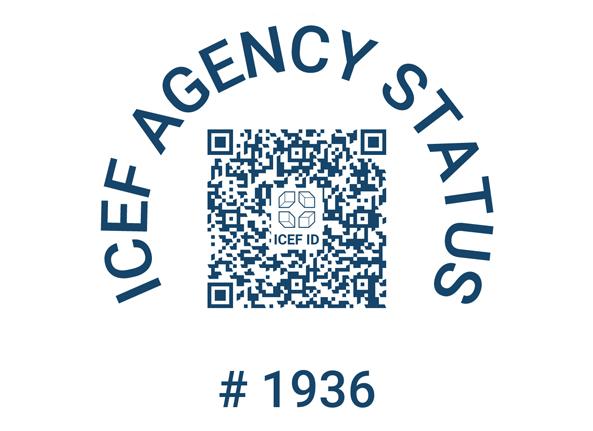
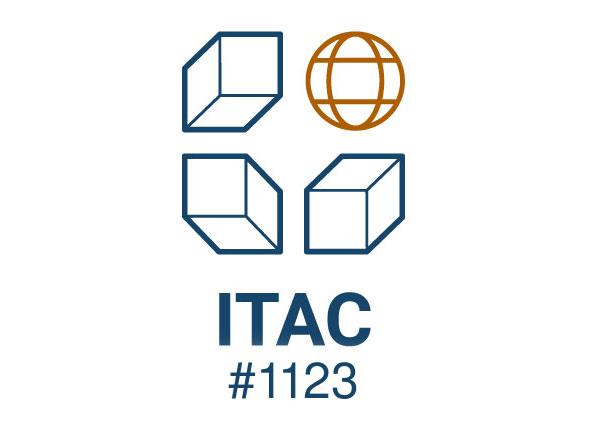

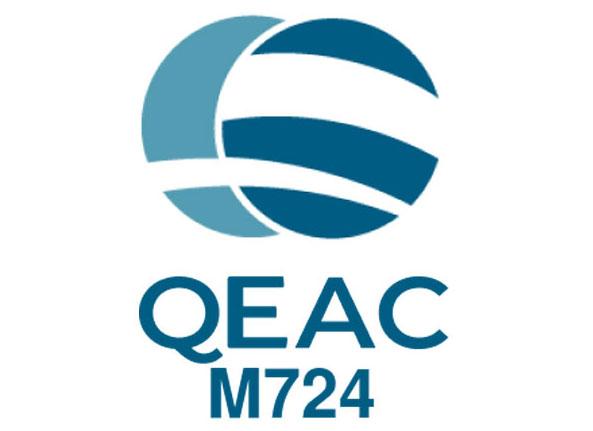
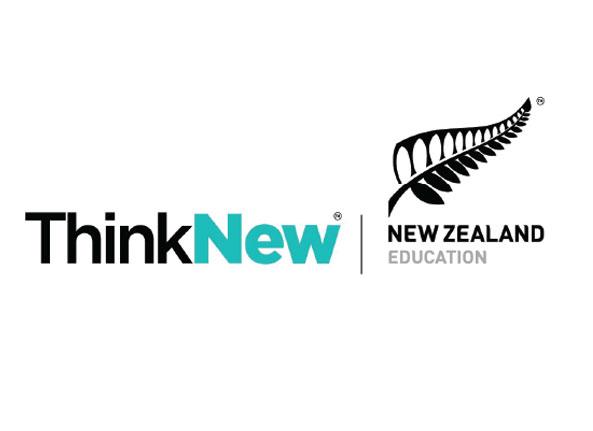

Student's Voice
Voices of students and parents.































